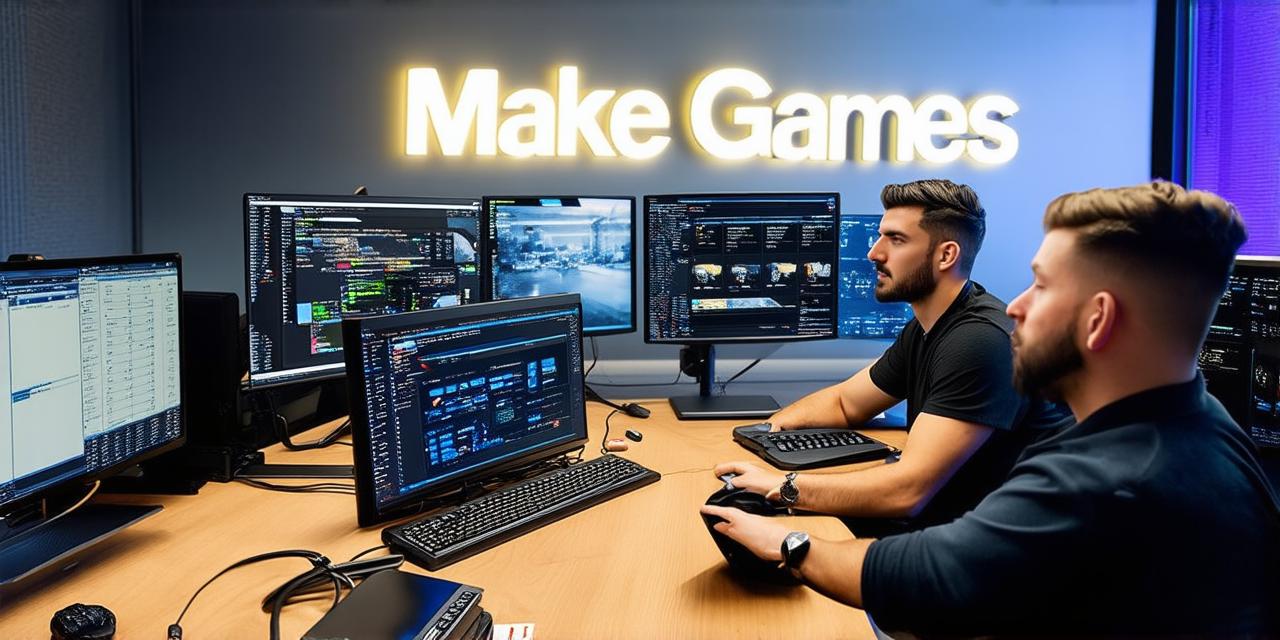What is Game Development?
Game development is the process of creating video games from concept to completion. It involves various stages such as design, programming, art, and production. Game developers work together in teams to create engaging and immersive gaming experiences for players around the world.
What Skills are Required for a Career in Game Development?
Game development requires a combination of technical and creative skills. Some of the essential skills required for a career in game development include:
- Programming skills: Game developers need to be proficient in programming languages such as C++, Python, or Java.
- Art skills: They should have a good understanding of graphic design principles, texturing, and 3D modeling.
- Creativity: Game development requires a lot of creativity to come up with unique and engaging game concepts.
- Problem-solving: Game developers must be able to solve complex problems that arise during the development process.
- Teamwork: They should be able to work effectively in teams, communicate well, and collaborate with other team members.
Different Paths to a Career in Game Development
There are several paths you can take to pursue a career in game development. Some of the most common paths include:
- Education: You can pursue a degree in game design, computer science, or a related field that focuses on game development. This will give you a strong foundation in the technical and creative aspects of game development and qualify you for entry-level positions.
- Self-study: If you don’t have access to formal education, you can still pursue a career in game development by learning through self-study. There are many online resources available that offer tutorials, courses, and workshops on various aspects of game development.
- Internships: Many companies offer internships for game developers, which provide valuable experience and opportunities to learn from experienced professionals.
- Freelancing: You can also pursue a career in game development as a freelancer, working on individual projects or contributing to open-source game development projects.
How to Optimize Your Chances of Success
To optimize your chances of success in the game development industry, here are some tips:
- Build a portfolio: Create a portfolio of your work to showcase your skills and experience to potential employers. This can include screenshots of games you have developed, code samples, or other relevant materials.
- Network: Attend industry events, join online forums and communities, and connect with other game developers to learn from their experiences and gain insights into the industry.
- Keep up-to-date with industry trends: Stay current with the latest developments in game development by reading industry news, attending conferences, and participating in online communities.
- Be persistent: The game development industry can be competitive, so it’s important to be persistent and keep learning from your experiences.
Real-life Examples of Successful Game Developers
There are many successful game developers who have followed different paths to achieve their careers. Here are a few examples:
- Markus Persson, the creator of Minecraft, started out as a self-taught programmer and went on to create one of the most popular video games of all time.
- Shigeru Miyamoto, the founder of Nintendo, began his career in game development by designing mazes for an arcade game before moving on to create iconic games such as Super Mario Bros. and The Legend of Zelda.
- John Carmack, co-founder of id Software, started out as a hobbyist programmer before creating the Doom game, which helped establish the first-person shooter genre in video games.
FAQs
Here are some frequently asked questions about pursuing a career in game development:
1. What kind of education is required for a career in game development?
While a degree in game design or a related field can be helpful, it’s not always necessary to pursue a career in game development. Self-study and experience are also valuable.
2. How do I become a game developer if I don’t have programming skills?
If you don’t have programming skills, you can still contribute to game development by focusing on other areas such as art, design, or production. Many game developers come from different backgrounds and have different skill sets.
3. What are the best tools for game development?
There are many tools available for game development, depending on your role and experience level. Some popular tools include Unity, Unreal Engine, Blender, and Photoshop.
4. How long does it take to become a professional game developer?
Becoming a professional game developer can take anywhere from a few months to several years, depending on your education, experience, and the complexity of the games you are working on.
Conclusion
Pursuing a career in game development can be an exciting and rewarding path for individuals with a passion for video games and a desire to create engaging experiences for players around the world. Whether you choose to pursue formal education, self-study, internships, or freelancing, there are many opportunities available for individuals looking to enter this rapidly growing industry. By building a portfolio, networking, staying up-to-date with industry trends, and being persistent, you can optimize your chances of success in game development and make a meaningful impact on the world of video games.
